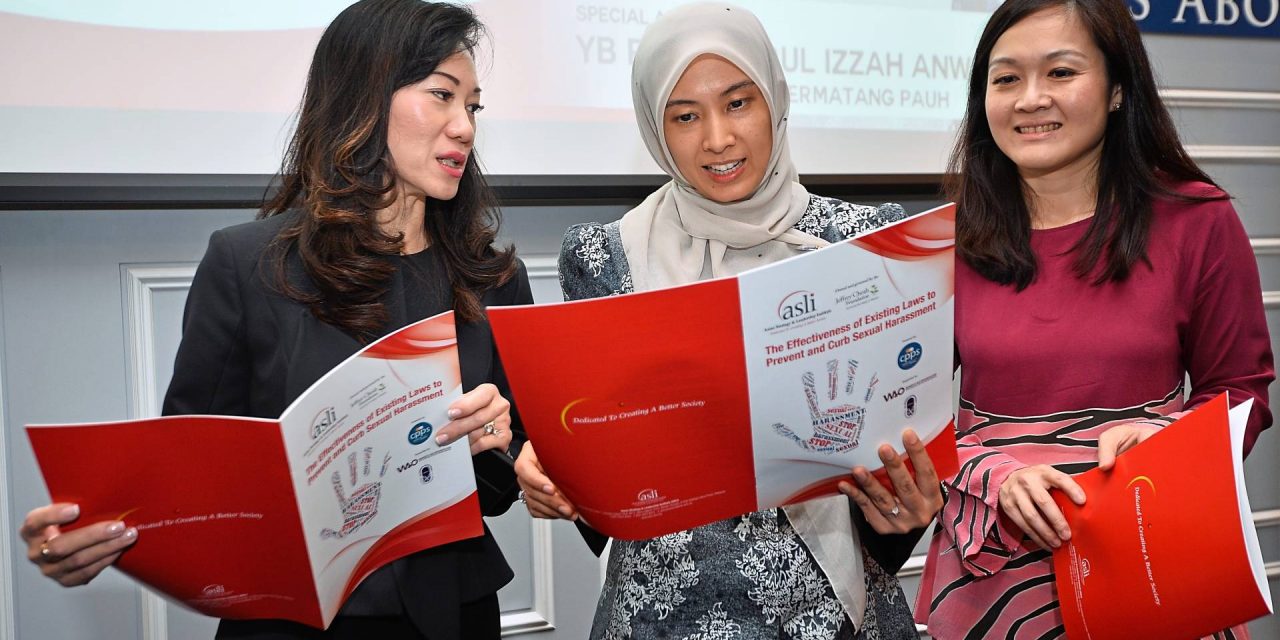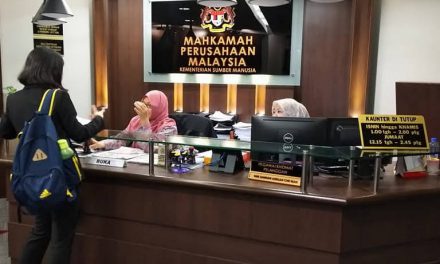PETALING JAYA | Malaysians will be more driven to report sexual harassment if they are confident that laws will punish offenders and protect the victims, a study revealed.
The Asian Strategy and Leadership Institute (Asli) said fear of safety, trauma, complicated grievance procedure, as well as disbelief in the system or that the situation would not change were among the major hindrances.
“The highest factors that will drive the respondents to report sexual harassment are desire to raise awareness on sexual harassment (85.9%), confident/believe that laws will punish offenders (85.7%) and confident/believe that laws will protect victims (84.3%).
“Fear of threat to family’s safety (42.7%), fear of threat to personal safety (42%) and trauma (38.4%) were among factors discouraging Malaysians from lodging reports, ” said the study.
Permatang Pauh MP Nurul Izzah Anwar launched the report yesterday, ahead of the government’s plan to table the Sexual Harassment Bill next year.
The study also said external factors hindering Malaysians include lengthy and bureaucratic grievance procedure (37.7%), believing that the situation will not change (36.9%) and disbelief in the grievance procedure (35.6%).
“The respondents’ knowledge on existing laws for handling sexual harassment cases is also low with only 17.4% aware about the related provisions under the Penal Code, ” it said.
A high number of participants also opined that existing laws such as the Employment Act and Labour Ordinances were not adequate to prevent and curb sexual harassment.
The research, conducted over a structured interview, involved 902 respondents across Malaysia, of which 56.1% were females and 43.9% were males, aged between 18 and 60.
“We hope the government will consider including offences of stalking, cyberbullying and doxxing to be part of the Bill, ” said Asli chief executive officer Melissa Ong.
Nurul Izzah said laws were crucial in preventing and curbing sexual harassment but there was also a need to hold more awareness campaigns to improve sensitisation.
She said even female lawmakers were not exempted from being treated in a manner tantamount to harassment.
“It’s important that all views are looked into and the Bill is not rushed when presented in Parliament, ” she said.
In a separate forum, former finance minister Tun Dr Daim Zainuddin urged Malaysia to focus on its agro-food sector and diversify into other agriculture produce to boost income.
Daim said there was immense potential in adopting precision agriculture (or site-specific agriculture) in growing cash crops such as coconut, cucumber, okra and watermelon.
“I’m trying to make agriculture sexy through technology.
“If I can prove that agriculture can make money, then more people will go into it, ” he said during the Asli forum on poverty alleviation.
Daim said the current trend of food imports was unsustainable, with over RM50bil last year, and urged Malaysia to act quickly.
On the Shared Prosperity Vision 2030, Daim said proper implementation was key to improving the people’s livelihood, minus the corruption.
SPV 2030 will continue with efforts to achieve the 30% bumiputra equity ownership target, a concept introduced under the New Economic Policy (from 1971 to 1990).









